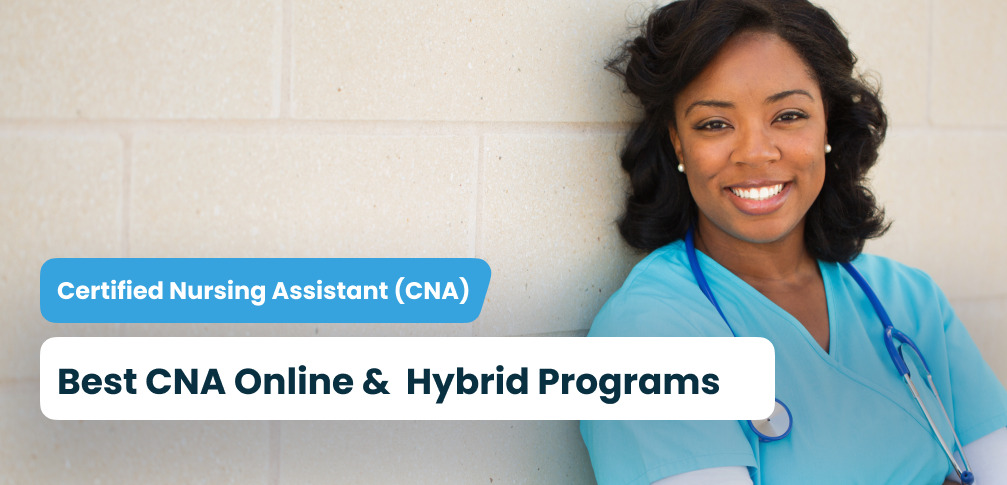Exactly How CNA Classes Can Assist You Release a Successful Profession in the Medical Area
CNA classes function as a foundational tipping rock for people desiring enter the medical field. These programs impart crucial skills, including efficient interaction and individual treatment strategies. Students engage in hands-on training, bridging theory with functional application. As the requirement for medical care specialists expands, the duty of a Certified Nursing Assistant becomes increasingly significant. This questions concerning the numerous career paths and improvement opportunities that exist ahead for those who complete their training.

Comprehending the Role of a Certified Nursing Assistant
The role of a Certified Nursing Assistant (CNA) is important to the medical care system, functioning as a vital web link in between people and clinical team. CNAs mainly help individuals with everyday tasks such as showering, clothing, and consuming, guaranteeing their convenience and self-respect. They are usually the first point of get in touch with for people, providing essential emotional support and companionship. Along with individual treatment, CNAs are liable for monitoring patients' crucial indications, reporting adjustments in problem to taking care of team, and keeping patient records. Their tasks encompass guaranteeing tidiness in client environments and aiding with mobility. This duty calls for a thoughtful behavior, strong interaction skills, and the ability to work successfully under stress. By promoting a smooth operations within medical care setups, CNAs play a significant component in boosting the overall client experience and supporting the more comprehensive clinical team in delivering high-grade treatment.
Key Abilities Obtained in CNA Classes
CNA classes outfit trainees with important skills required for providing high-grade individual care. Among the main skills created works communication, allowing CNAs to communicate compassionately with people and plainly relay info to healthcare groups. Students likewise learn critical reasoning, which aids in assessing patient demands and responding suitably in different scenarios.
Furthermore, CNA programs stress personal treatment skills, incorporating support with day-to-day living activities such as showering, dressing, and feeding - CNA Classes. Infection control strategies are another critical component, making sure that students comprehend how to preserve a secure environment for both individuals and themselves
Students get expertise in basic medical terms, facilitating far better understanding of healthcare methods. Time monitoring abilities are grown to help CNAs prioritize tasks effectively. On the whole, these key skills form the foundation for a successful profession in the medical field, preparing students to satisfy the varied demands of patients.

The Advantages of Hands-On Training
Gaining functional experience via hands-on training is necessary for aspiring CNAs, as it connects the void in between academic understanding and real-world application. This immersive understanding method makes it possible for pupils to develop crucial skills required for person treatment, such as reliable communication, empathy, and technical abilities. Engaging in real-life circumstances permits trainees to understand the dynamics of a healthcare atmosphere, promoting self-confidence in their capacities.
Hands-on training aids students become familiar with vital tools and treatments, guaranteeing they are well-prepared for the challenges of the job. It also offers chances to get instant comments from trainers, enhancing the learning experience. By working directly with patients under supervision, aiming CNAs can hone their empirical abilities and find out to react to different circumstances properly. Ultimately, hands-on training equips these future healthcare experts with the competence and guarantee needed to be successful in their roles.
Career Opportunities After Coming To Be a CNA
Many profession possibilities wait for individuals who complete their CNA training, opening up doors to you can find out more various duties in the health care industry. Certified Nursing Assistants (CNAs) are important members of the medical care team, giving direct patient care in settings such as medical facilities, taking care of homes, and helped living facilities - CNA Classes. Their obligations can include aiding with everyday living tasks, checking vital signs, and supplying emotional assistance to patients
Beyond typical settings, CNAs might also discover chances in specialized locations, such as rehab facilities or home health and wellness treatment. Furthermore, some might move right into roles in management assistance or client campaigning for, leveraging their direct experience with patients. The need for CNAs proceeds to expand, driven by an aging population and a raised focus on quality person care. This high need guarantees that people getting in the field have a range of options to go after, making it an eye-catching entry factor into a rewarding occupation in healthcare.
Pathways for Innovation in the Medical Care Field
Innovation in the healthcare field offers multiple paths for people looking for to improve their professions beyond the role of a Certified Nursing Assistant. After gaining experience, several CNAs decide to go after additional education and certifications, such as becoming an Accredited Practical Registered Nurse (LPN) or Registered Registered Nurse check my source (RN) This shift frequently involves enlisting in connecting programs that acknowledge their current skills.
Additionally, specialized certifications in areas like geriatrics or pediatric medicines can open up doors to specific niche functions, improving both job complete satisfaction and income capacity. CNAs may also discover management settings, such as health care monitoring or person treatment sychronisation, which utilize their frontline experience in a various capacity.
Constant professional growth through workshops and seminars can maintain CNAs updated on sector requirements, making them much more affordable prospects for development. The health care field supplies various opportunities for development, making it possible for CNAs to form their profession trajectories properly.
Frequently Asked Questions

The Length Of Time Do CNA Classes Typically Require To Full?
CNA classes commonly take in between four to twelve weeks to complete, relying on the program structure. Factors such as training course intensity, Source scheduling, and the establishment's curriculum design can affect the general period of training.
What Is the Expense of CNA Training Programs?
The price of CNA training programs varies extensively, usually ranging from $300 to $2,000. Variables influencing this price include area, program length, and whether the training is offered via neighborhood universities or personal institutions.
Are Online CNA Classes Available?
On the internet CNA classes are indeed readily available, providing adaptability for students. Numerous establishments give virtual training, allowing people to finish coursework at their own pace while still satisfying the essential needs for certification in nursing support.
What Is the Accreditation Exam Process Like?
The qualification exam procedure typically includes a written examination assessing understanding and an abilities demonstration. Candidates need to pass both components to end up being qualified, ensuring they satisfy the essential proficiencies required for nursing assistant duties.
Do I Required Prior Medical Care Experience to Register in CNA Classes?
Prior medical care experience is not a requirement for enrolling in CNA classes. People from numerous histories can go into the program, as it is created to supply detailed training and expertise needed for effective accreditation and practice.